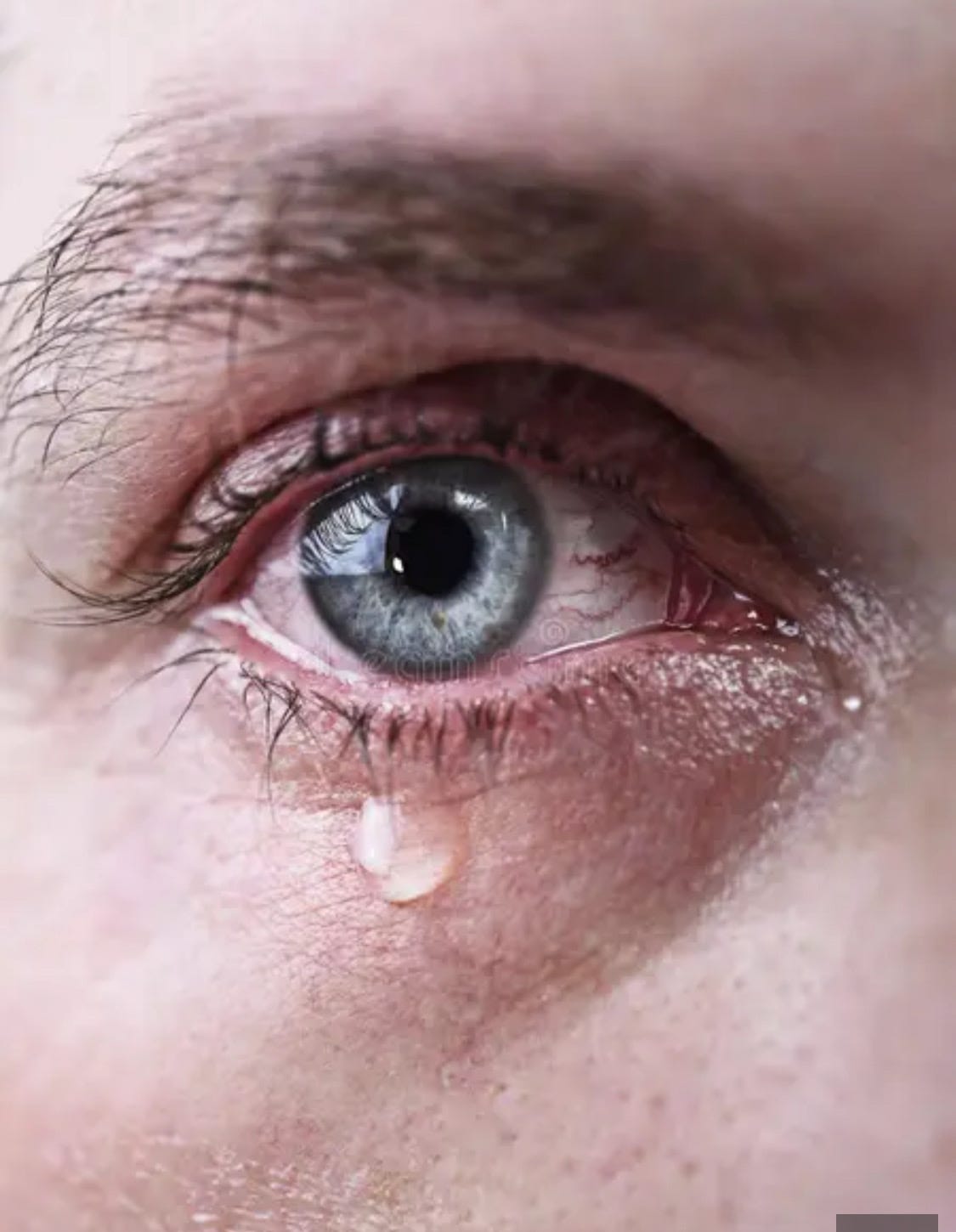Crying at Work
A Leadership Confession
By Clare McGinn
I’ve cried at work twice in my BBC career. Once in a meeting. Once in a redundancy consultation. Both times in front of others. Both times, despite myself.
These weren’t elegant, misty-eyed tears. They were the real thing — emotion-fuelled, involuntary, unstoppable. The kind of tears that appear without warning and leave you feeling exposed, but oddly relieved.
The first time, I was leading a team through a fraught period. A hundred moving parts, too few hours in the day, and a growing sense that I was holding the stress on everyone’s behalf. I answered a simple question — and promptly burst into tears.
The women in the room were brilliant. No drama, no awkward silences. Just practical kindness. It wasn’t the tears that shocked them — it was that they hadn’t seen them coming. I’d been so composed, so relentlessly functional. That moment of emotion told them what my actions had been disguising: I was burnt out.
The second time came years later. I cried during my redundancy consultation — though ‘cried’ isn’t quite the word. These were tears of fury. Of disbelief. Of indignation. I’d walked in braced for the conversation. But hearing the words spoken aloud — the formality, the finality — hit a nerve. And the emotion surfaced.
This time, the main recipient was a man. Senior. Sincere. But completely floored. He looked devastated, embarrassed, helpless. And he stayed that way. Afterwards, our dynamic changed. He didn’t know what to do with what he’d seen: a woman, in a leadership role, crying.
The contrast was stark. One moment opened up connection. The other created distance. But the tears in both cases said the same thing: this matters.
And that’s what brings me to Rachel Reeves.
A few days ago, the Chancellor cried in the House of Commons. A private moment, in a very public space. After months of scrutiny and slog, the emotion hit. And of course, the reaction came too — headlines, smirks, and that awful undertone of “not up to it.”
We’ve been here before. Leaders cry. Thatcher cried. Justine Ardern. So did Theresa May. Hillary Clinton. Angela Merkel teared up leaving office. Each time, the same script: suspicion, scrutiny, and a sniff of unfitness.
If a male politician had cried, it likely wouldn’t have made the footnotes. We’d have said he was human. We’d have called it pressure, not fragility. But for women, emotion still trips a wire.
This isn’t about the optics of one politician. It’s about a culture that still finds female tears threatening. Crying is a physiological release — it lowers cortisol, rebalances the nervous system. It’s as human as laughter. But when women cry, especially in public life, it’s read as a failure of professionalism.
I’ve worked with enough leaders to know this: it’s not the ones who cry who concern me. It’s the ones who feel nothing. The ones who suppress everything and call it strength. Emotional detachment is still mistaken for competence. It’s not. Often, it’s a warning sign.
When I cried at work, it wasn’t planned. It wasn’t a tactic or a performance. It just happened — because I’d hit my limit. And each time, the tears shifted something.
In the first instance, they started better conversations. About pressure. About pace. About culture. In the second, they ended one. Not out of malice, but discomfort. Emotion made the room unfamiliar. A senior man saw something he couldn’t process. And so he disengaged.
We talk now — rightly — about mental health and wellbeing. About psychological safety and authenticity. But we still expect people to keep their feelings somewhere off-site. Especially women. Especially leaders. Especially in politics.
But surely leadership isn’t about being unflappable. It’s about being human, under pressure. Sometimes that means a wobble. Sometimes, yes, it means crying.
Rachel Reeves cried. And in doing so, showed that she still feels the weight of what she’s doing. That should reassure us, not unsettle us. A Chancellor with a working emotional barometer is far more valuable than yet another dead-eyed strategist working the optics.
We’ve had decades of men bellowing and barking through press conferences, dodging accountability, and calling it “strong leadership.” Perhaps it’s time we stop confusing volume with vision, and start recognising that the real work of leadership involves actual feeling.
So to those, like me — man or woman — who’s cried at work and felt ashamed. Don’t be. It means you were real in a system that often rewards numbness. It means something cracked, but you didn’t.
And to the women trying to hold it together - don’t assume that a moment of emotion will undo you. It won’t. It might even tell the truth better than anything else.
#Leadership #WomenInWork #RachelReeves #EmotionalIntelligence #WorkplaceCulture #CompassionInPolitics #Wellbeing #CryingAtWork #PsychologicalSafety




Powerful words.
I used to cry in the toilet at work… and carried a fragment of a Marge Piercy poem in my purse which read something like … ‘ Those who mean what they make down to their bones, who commit the uncouth error of feeling, of making others feel, their reward is to be made to feel worthless.’ ( I’m not sure it helped, but resonated… )